1. Spirit
1.1. Insecure attachment in infancy
1.2. Persons living in poverty
1.3. Minority groups
1.4. Persons exposed to war/conflict
1.5. Challenging life events
2. Mind
2.1. Family violence in childhood
2.2. Low self-esteem
2.3. Cognitive/emotional immaturity
2.4. Environment
2.5. Social and economic circumstances
3. Psychological evaluation
3.1. Neurodevelopmental Disorders
3.1.1. ADHD
3.1.2. Learning disorder
3.2. Schizophrenia
3.2.1. Delusions
3.2.2. Hallucinations
3.2.3. Disorganized thinking
3.2.4. Disorganized speech
3.3. Bipolar
3.3.1. Manic
3.3.1.1. Alternating excessive activity w depression
3.4. Anxiety disorder
3.4.1. excessive worrying
3.4.2. panic disorder
3.4.3. phobia
3.5. OCD
3.5.1. Obsessive-compulsive actions/thoughts
3.5.2. hoarding
3.6. PTSD
3.6.1. Post traumatic actions/thoughts
3.7. Dissociative disorder
3.7.1. sense of self disrupted
3.7.2. amnesia
3.8. Personality disorder
3.8.1. antisocial
3.8.2. narcissistic
3.9. Addictive disorder
3.9.1. excessive alcohol, caffiene, tabacco, drugs or gambling
3.10. Eating disorder
3.10.1. anorexia
3.10.2. binge eating
3.10.3. nervosa
4. Treatment
4.1. Medications
4.1.1. Antidepressants
4.1.2. Antianxiety
4.1.3. Mood stabilizers
4.1.4. Antipsychotic
4.2. Psychotherapy
4.2.1. Coping
4.2.1.1. Counseling
4.3. Brain-stimulatiion
4.4. Hospital/residential in pt. program
4.5. Outpatient program
4.6. Substance abuse care
5. Body
5.1. Substance use in pregnancy
5.2. People living w chronic conditions
5.3. Medical illness
5.4. Substance use
5.5. Biology
6. Treatment team
6.1. Primary care doctor
6.1.1. care for your well being
6.2. Psychiatrist
6.2.1. doctor can diagnose and treat you
6.3. Psychologist
6.3.1. licensed therapist
6.4. Pharmacist
6.4.1. follow medications
6.4.1.1. manage side effects
6.5. Social worker
6.5.1. financial assistance
6.5.1.1. navigate benefits/programs
6.6. Family members
6.6.1. love
6.6.1.1. support
6.7. Yourself
6.7.1. participate in your own care
6.7.2. stick to the treatment plan
6.7.3. avoid alcohol and drugs
6.7.3.1. Quit smoking & drinking
6.7.4. stay active
6.7.4.1. Loose weight
6.7.4.1.1. eat healthy
6.7.5. don't make decisions when symptoms are severe
6.7.6. determine priorities
6.7.6.1. reduce stress
6.7.7. learn to adopt a positive attitude
7. Prognosis
7.1. Confidential
7.1.1. You decide who you tell and not tell
7.2. It's not your fault, no single cause- anyone can develop a mental health condition... reach our and get help, EARLY RECOGNITION and treatment
7.2.1. Greater self esteem
7.2.1.1. Improved relationships
7.2.1.2. Improved study/schooling
7.2.1.3. Improved work connections
7.2.1.4. More leisure interests
7.2.2. Resilience
7.2.2.1. better day to day choices
7.2.2.2. feel better and do better for yourself
7.3. Un treated mental illness
7.3.1. Increased likely hood of experiencing a disability
7.3.2. Premature death
7.3.3. Experience discrimination or stigma
7.3.4. Impoverishment or loss your job
7.3.5. Social exclusion and isolation
